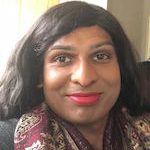2017: Watershed Year For LGBTQI+ Rights In Sri Lanka?

By Chamindra Weerawardhana –January 1, 2017
A new year often dawns with new resolves and wishes, and this especially appears to be the case with the LGBTQI+ community in Sri Lanka. As dialogue on a sexual orientation and gender identity (SOGI)-related equality clause in the proposed new constitution continues, an absolute priority is that of raising awareness on SOGI-related fundamental rights among policymakers, senior government officials, the judiciary and law enforcement officials. This is due to an extremely worrying lack of awareness and understanding that pervades government circles. The attitudes of many policymakers and officials towards SOGI issues are shaped by prejudices and colonially imposed Victorian [im]moralities, which, contrary to what many of us assume, are also deeply ingrained in what could be described as the ‘Sinhala-Buddhist establishment’. In a land nurtured by Buddhist philosophy along the logic of Sabbé satta bavantu sukhi thattha, ensuring the protection of the basic human rights of all citizens fall well within Sri Lankan, if not Sri Lankan-Buddhist traditions of tolerance and acceptance. Indeed, this reading categorically contrasts with the Temperance Movement-instigated appropriation of Victorian moralities and values that many of us blindly assume as ‘Sinhala-Buddhist’, which, in reality, have very little ‘Sinhala’ and next to no ‘Buddhist’ within. The latter Buddhist establishment remains highly patriarchal, harbouring an extremely discriminatory attitude towards gender equality within the clergy and beyond. This situation has resulted in a climate in which those who present themselves as the yellow-robe-clad custodians of ‘national’, if not ‘traditional’ values are in fact perpetrators of gender and sexuality-related oppressive conservatisms imposed upon us under Western colonial rule.
Hypocrisy in the LGBTQI+ political class?
Concerning the political class, this writer cannot avoid highlighting the staggering level of hypocrisy among senior politicians. In a country where LGB people occupy posts as high as Head of Government and several key cabinet ministerial portfolios including Law and Order, External Affairs and Education, one seldom comes across a politician prepared to openly affirm ‘we stand unequivocally for the fundamental rights of all citizens irrespective of their sexual orientation and/or gender identity’. This silence can be explained in their fear of a possible backlash that would be politically disadvantageous. However, the high-level power that the aforementioned politicians wield provides them with clear leverage to articulate SOGI-related fundamental rights and freedoms within a broader and water-tight emphasis on human rights and gender justice. Although the yahapalana government circles include several supportive MPs and specialists (such as the spouse of the Head of Government, a Gender Studies professor of international fame), its attitude to gender politics (including SOGI-related issues) continues to remain somewhat ‘hush-hush’, to say the least. A more forthright approach on fundamental rights would indeed be a welcome gesture in 2017.
Gender justice as interlinked to external affairs priorities?
SOGI-related human rights are inherently linked to overall objectives of gender justice. SOGI issues cannot be separated from issues of violence against [cis and trans] women, the socioeconomic violence suffered by [cis and trans] women from ethnic minorities and lower echelons of caste and class structures. If equality (and especially gender equality) is to be included in educational syllabi, it imperatively requires a strong SOGI-related emphasis. Similarly, reconciliation initiatives are incomplete in the absence of SOGI-related protections. Their omission from the statute book, action plans and strategic goals implies a low, if not insincere grasp of the welfare of citizens affected by deep-seated ethnonational (or should I say ethno-patriarchal) violence. Here again, Sri Lanka has the human resources and expertise to formulate forerunner legislation that could provide an example not only to the rest of the subcontinent, but also to the world at large. If Sri Lanka is negatively perceived at UN and other international human rights platforms, and if some powers are keen to push Sri Lanka against the wall in the name of human rights and pursue their own agendas (such as regime change operations), the myopia of the Sri Lankan political establishment to tactfully adopt a discourse on fundamental rights to ALL citizens (and a well-formulated and intersectional policy approach on gender justice) is primarily to be blamed.

